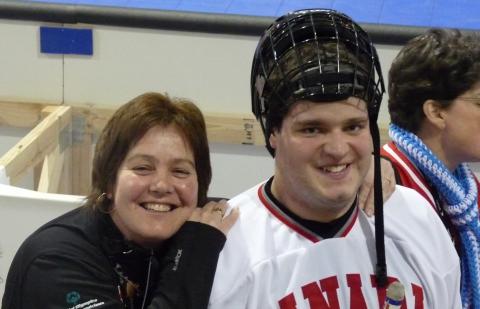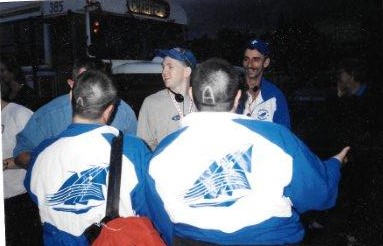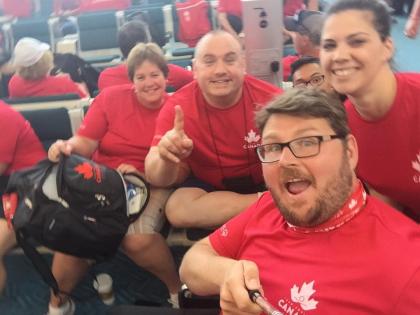Longtime Special Olympics Nova Scotia volunteer Cathy Mason can vividly recall her first National Games experience 20 years ago.
Her Pictou County softball team travelled to Sudbury for the Special Olympics Canada 1998 Summer Games and qualified for Division A – made up of Canada’s top-performing teams.
Her athletes felt unprepared for the division and a little defeated, so Mason, only two years into volunteering at the time, decided to offer up some motivation with a promise to shave her head if they made it to the gold medal game.
By the final inning of the qualifying round, it was close: two outs, bases loaded and an athlete who “never hit in his life” at bat.
First pitch: strike one. Second pitch: strike two. Third pitch: a line drive down the third base line, sending everyone home. They won the game and moved on to the gold medal round.
“So I went and shaved my head,” Mason said matter-of-factly. “A bet’s a bet.”
While she admits the team didn’t expect her to follow through, their reaction was worth it.
“I got the bug (for Special Olympics Games) after that,” Mason said, adding that she’s been to 10 National Games and is coming up to her fifth World Games in Abu Dhabi, UAE next March.
"It's changed my life in many ways."
Mason has maintained the same unwavering dedication to Special Olympics for 26 years.
“Cathy has helped set the bar higher for everyone,” Special Olympics Nova Scotia CEO Mike Greek said. “(Pictou County) became the kind of benchmark for what makes a solid region in the province and she became a leader among her peers.”
In 2001, Special Olympics Nova Scotia was struggling to stay afloat and regions across the province were in need of committees and fundraising models.
Mason, now volunteering as Regional Coordinator for Pictou County, traveled nearly 500 kilometres to one of the struggling regions. She helped organize a fundraising event that raised an impressive $8,000 in its first year. It’s now an annual fundraiser.
Her involvement with Special Olympics is volunteer-based. By day, she works for Island Community Residential Services, helping individuals with intellectual disabilities find housing. She spends her vacation time travelling to Special Olympics Games.
“It’s changed my life in many ways,” she said. “I’ve become a better leader and more confident just from being part of the National Team Program and just learning from our athletes.”
She’s made lasting friendships and experienced many “feel good moments,” including her first Special Olympics World Games in Idaho in 2009.
After receiving new gear and uniforms for the Games, her floor hockey team donated their old equipment to a team from Gibraltar.
“They were so grateful and so appreciative that they didn’t have to share gloves anymore,” Mason recalled. “Every time the goalie made a save he’d give the thumbs up to the coaches and I.”
Of course, there are stressful moments, like an athlete losing their passport before the 2011 Special Olympics World Summer Games in Greece.
“But at the end of the day, it was the experience for those athletes that stands out,” said Mason. “I don’t think there’s any greater feeling than watching the athletes compete, succeed, or just seeing them give their all – whether they’re winning a medal or not.”
Mason hopes her story will encourage others to become volunteers and take on leadership roles.
“Jump in and help with whatever you’re comfortable with,” she said. “Before you know it, you’ll be involved a little more and you’ll be hooked.”



